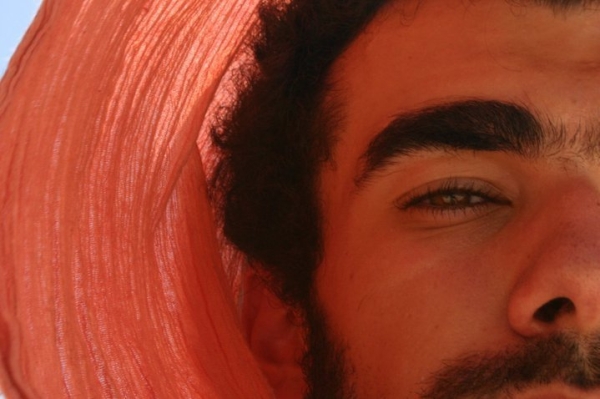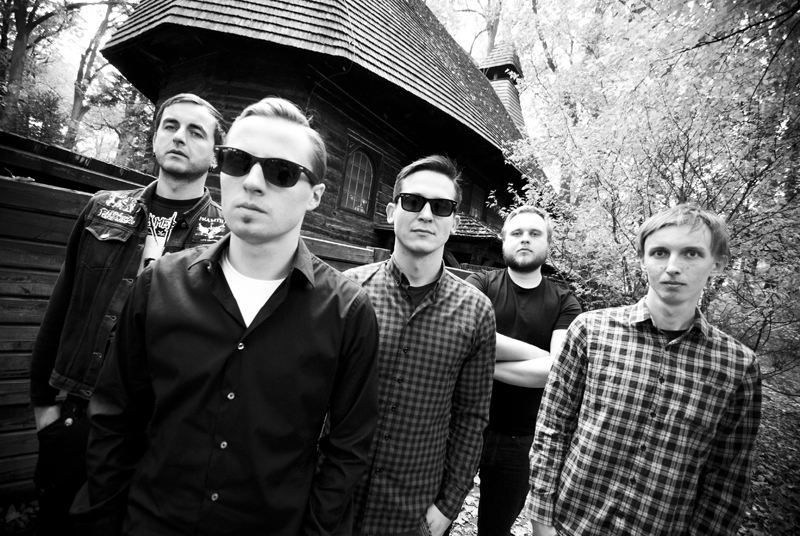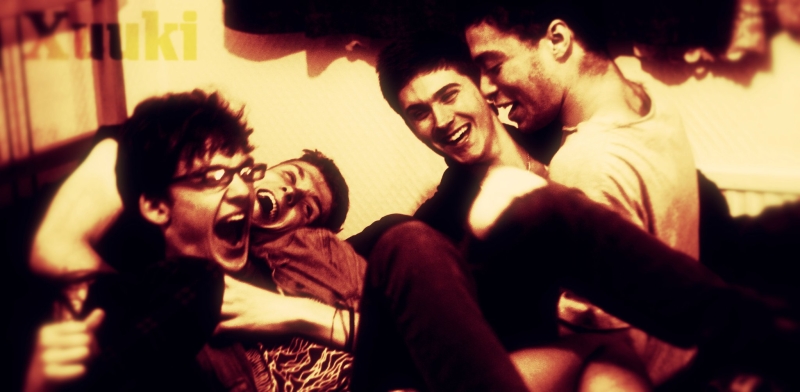We conducted an interview with a London composer and producer MOSES on January 24, 2012.
Hey there. How are you? Please introduce yourself to our readers. How would you describe your form of art?
Hello… I’m good. Art is a very subjective thing. Anyway, shame about the whether… this cup of ginger and lemon tea is so good though. My name is Moses Melkonian, I’m a wanderer, I’m anti ‘anti’, and very pro wandering and I seem to spend most of the hours of my day sitting at a piano… It’s pretty good.
How does it feel to be a multi-instrumentalist [laughs]? I mean, seriously, I can barely focus on one instrument. How many instruments do you play? Which one is your favourite and why?
I do play a few instruments, yes. But it never feels like I’m a multi-instrumentalist, it’s more like ‘this week, the piano, or the guitar…. next week, mm, maybe the sitar’… I go through phases to suit my particular mood. As you know, every instrument has it’s own voice and colour. For me, it’s a kind of a crime to say I play all these instruments, because I look up to the virtuosos like Villa Lobos, Chopin…
It’s kind of important to be modest, don’t you think? – No matter how many instruments you play, or how well you play them, it’s only when you think you that you Rock that you stop practicing. And it’s a crime to think that you ever do actually Rock! Apart from all the other noisy voodoo-things that I’ve gathered from Africa and god knows where, my main instruments are piano, guitar and drums.
What’s the most extreme musical taste you have ever had? Is it still in your interest?
I once got into a genre tagged on last.fm as ‘Cold Meat Factory’ – just very dark ambient music… Like everyone else, my musical interests too are constantly developing. But the one form that remains the strongest influence is symphonic music, anything from Brahms to Stravinsky, Mozart to Debussy. I don’t know, but I feel that symphonic music displays the highest form of art and music, it is the most expressive genre for me. A composer can re-create, say, the explosion of the big-bang with an orchestra or depict a the silence of a calm woodland – it is the medium that has the most scope and potential, for me.
Haven’t you been tempted to cooperate with professional, let’s say “external” producers? It might have resulted in a fresh look and feel of someone objective towards your music.
I have, indeed. I believe that any artist, no matter how experienced, can always improve with the help of a professional ‘second head.’ That’s the problem with creative people nowadays. We all think we’ve got it, and cracked it…I’m sure I could benefit from producers who know the craft inside out. But my bank manager isn’t willing to pay them for me – even though I’ve asked very nicely! I’ve not signed any recording deal or management contract, yet. The album is however, being recorded in a professional studio, thanks to a dear friend.
“The Voids” is your debut album, but you have quite an experience. Tell us more about your history and past projects.
My father, Vartan Melkonian, naturally, has had a massive influence on my musical journey. Before I was born he had been working with bands such as EARTH, WIND AND FIRE and the SEX PISTOLS. I remember as a child he took be out of class to go and watch him record with an orchestra at no lesser studio than the iconic Abbey Road Studios. After the session he allowed me to go into a recording booth to play the Congo’s. I played over whole his whole symphony without a bars rest – “on a separate track.” At that time he was commissioned to write a symphony for the Sultan of Oman. He has taught me to score for a symphony orchestra – and I owe him a lot for that! He got me learning piano from about the age of 5 or 6. I soon gave it up, as I didn’t like that particular teacher! I took up drums and guitar and throughout my teenage years played in bands ranging from the VERY avant-garde, through to metal, folk and jazz. This gave me a wide scope of influences. I formed my own band called GHOST OF THE GULLY. We had shows, we recorded and I loved all the guys in the band very much. But again due to musical differences I broke off from the band to pursue a solo career. This decision came after I had been travelling in the middle east for a few months. Visiting the homeland of my forefathers, in eastern Anatolia (former Armenia) and visiting the orphanage in Lebanon where my father was brought up before he took to the streets. I actually made my first documentary film out there about this orphanage, The Birds Nest in Byblos, and why it exists… you can watch it here. So during my travels in Turkey, Syria and Lebanon I was able to reflect and really think about what kind of music I was going to make next. Traveling and changing my environment is a key part of my composition method. So when I came back I got a job at a recording studio, and it was there that I spent hours crafting the particular sound that is now becoming my trademark, so to speak.
Tell us a few stories behind the making of this album.
When I decided to record this album I was trying to squeeze in time around my work life, which proved frustrating and very unproductive. My girlfriend, Kai and I decided to leave the UK and travel around Morocco for two months. Against all advice, I took my laptop with me and scored out the whole album using Sibelius notation software – glad to say, after crossing the Sahara desert on camel-back the sandy laptop is still intact!. It was a great way to work, away from all distractions with only the desert, good people and good food. Kai would leave me in a cafe while she explored the town, she’d come back 4 hours later and I’d still be there glued to the laptop. I would send the half-baked scores back to my father via any Internet cafe I could find and seek his advice… the poor man! It was during this time that I began to grasp the importance of counterpoint and voicing… I learnt a lot in Morocco.
I wrote, scored out and completed a three part epic that spans across the whole of the album and is the title track, The Voids.
If you’re looking for funny studio stories, there aren’t many. I work alone in the studio, preform everything, record it, mix it and master it… I often go to the Dheli, buy some fruit loaf, a can of red bull and work all night through till the morning. The work flow is very important for my process.
How has your attitude to music changed over the years?
When I first started playing in bands, I’d just rock around with a guitar writing songs, or get on the piano and just start playing whatever came… No, after conceiving the music in my mind, I score it for piano first, then I score it all on Sibelius for many instruments, then, only when I’m reasonably satisfied I go into the studio. So I have every element of it written already. I pay much more attention to inner harmonies, counter point and voicing. I compose my music as if it were for a symphony orchestra, and indeed, there is an orchestra on the album! Away from the album I am composing 5 piano preludes and fugues and, believe it or not, my first symphony, which is meant to depict the Apocalypse witnessed through the eyes of a young girl – which girl?
You are about to release your version of “Nothing Compares 2 U” originally by Sinead O’Connor. Why did you choose this song? What other inspirations influence your music landscapes?
A few reasons. Firstly, I’m a big PRINCE fan, and he originally wrote this song for a band he fronted called THE TIME. I wanted to say thanks to PRINCE for showing me that pop music doesn’t have to be a generic genre but can be twisted and warped. His album Sign O’ The Times is a great work, and there is a lot of experimental / pop crossovers within it and it was a huge success. I also admire his work ethic, he’s still releasing songs he wrote in the 80’s, not many artists can do that. I also think it’s a great tune and wanted to put my spin on it. I also hope that the video generates royalties for the copyright owner whether that’s PRINCE or EMI.
Other influences however…well I try not to be influenced by anything too much. Since I’ve been writing this album I haven’t listened to much music at all. I think too many bands get caught up trying to sound like other people. I just focus on my own sound. If I want to hear music or get away from my work I just go for a walk in the woods with my dog and the silence by the River Chess is refreshing.
What’s the best place to listen to your music?
Anywhere, as long as your eye’s are closed. Online – Spotify and if you want the full experience you can watch my music videos directed by A.Leaman on youtube.
How many shows have you been playing so far? How important is performing live to you? What are your touring plans for 2012?
I’ve played many shows in London with my old band and solo with a piano. The album features a full string section, brass section, woodwinds, taiko drums, a timbali set, a drum kit, up to three guitars, vocals, pianos synth’s and electronic drums, you name it, it’s all there, sometimes all on one track. I have got together a band, somehow. But really, live I’m not going to try and re-create the sound on the album, rather create a whole new experience. I plan to connect video projections, live band performance and wi-fi networks to create a new engaging live show which may be quite different from anything that’s going round now.
Live shows are very important to me, if not more so than the album, it’s where the listener is fully immersed and is part of the sound. I feel audiences are getting ripped off these days by poor performances and third rate artists. People need to feel euphoric about music again – and without the drugs…
You have had coverage from NME online and various music blogs, but you remain a mystery to many people. How do you plan to promote your music?
I have a few plans… It’s funny, so many bands care more about their promotion or their image more than their music! It seems the vital key to it all is often over looked – the music. I’m focusing now on my music and trying to stick to the particular sound that I seemed to have created. I guess the idea is, if it’s good enough people will share it? [laughs] I don’t know, if it’s not good enough to share than it’s not good enough to promote. I always say, if it’s not great to start with, no matter how much you do it, it’s not going to work. Music should promote itself, the moment you start forcing it on someone they will immediately turn away. People should choose to enjoy it.
What do you think about current music industry trends? Is it hard to make it in the music industry? It’s hard to say your style will ever get to the core of the mainstream, but the question remains: DIY vs. mainstream/commercial way?
The idea behind commerical music trends will always remains the same. It’s a fashion, if there’s hype around anything, no matter what it is, people will get into it because they feel like they should. We have no reference points, we are aimlessly moving forward with no relation to what is real art or what is self-indulgent. If Leonardo Da Vinci could see what was hung up in most exhibition halls these days, he’d probably jump off a bridge. Let’s look at THE BEATLES, they defined the concept of an album with Sergent Peppers, they made labels realise that ‘actually singles are just off shoots of a bigger idea.’ And yes, they took avant-garde ideas and threw them in a melting pot with pop ideas, but with professionalism, with talented producers. That’s the key here… I’m all up for DIY, but really I’d prefer my house not to get blown down by a gust of wind. You get kids writing ‘Neo-classical’ music in their bedrooms without knowing the difference between a violin or a viola, or just giving all the bass notes to cellos without knowing that they are an octave apart… No, the DIY attitude to making music has caused a mass ejaculation of lower quality artists that unfortunately audiences are getting numbed to.
It is hard to make it in the music industry, it takes years of hard work, and it should be hard, it’s not an easy game.
What’s the biggest hype in London right now? What is the biggest hype you have ever been suckered into?
To be honest, I wouldn’t tell you, maybe some kind of new breed of minimal house crossed with soul and fidgety beats, it would change the next day. Yes, your music has to be relative to the current trends, I take that… but audiences aren’t sheep, they like to be challenged. I hope my music will compel them to listen and to seek out more.
You must be a big fan of new technologies [laughs]. How do evolving technologies affect music and the industry? How do they affect your life?
Technology itself makes it easier for producers to do a whole range of things instantly. But what it does most importantly is take our attention away from the key parts of making good music. Harmony counterpoint and sequence – The key ingredients. Back in the days you would never go into a studio without a full written score of the song, now, when I go into the studio with music sheets in my hand, people look at me as if I’m from another village. Then nothing more refreshing then going back basics, My father too has written a new symphony which has begun a post a-tonal renaissance movement.
Thank you! Any last words?
If you’re into photohraphy or art check out aaronleaman.com this dude has helped me a lot with videos and promo. Thanks for the interview, thanks for the interest, my album will be out in Spring, if you’re curious enough to step down the rabbit hole please do, but mind the gap x












Thanks for the introduction to this talented artist
Enjoyed this. Cheers x
[…] Click on the image below to read an exclusive interview I had with idioteq.com […]
Well put together piece.